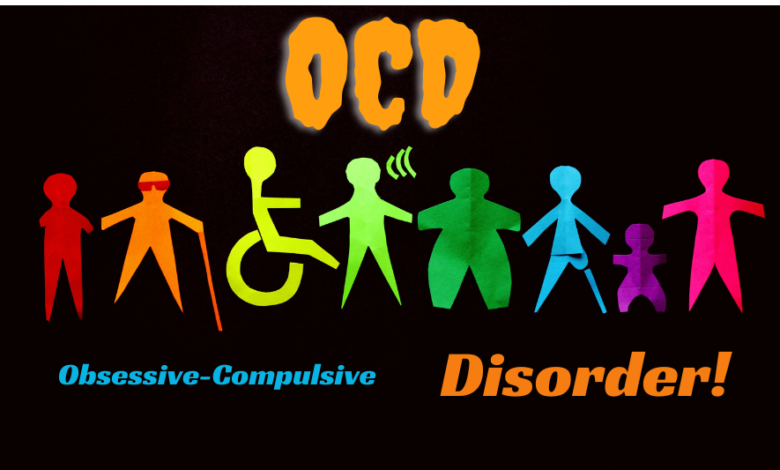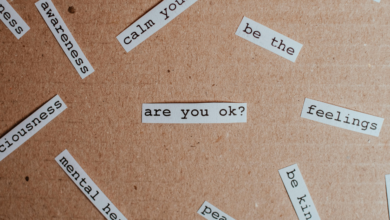Could YOU Have OCD and Not Know It?

Obsessive-Compulsive Disorder (OCD) is often misunderstood and frequently characterized by an overplay of cleanliness or order. However, the reality of OCD is much more complex and surrounds a wide range of symptoms that can affect individuals in different ways. Experts judge that nearly two-thirds of those who suffer from OCD remain undiagnosed, often ignorant that their experiences fit the basis for the disorder. This article delves into the nuances of OCD, highlighting the lesser-known symptoms and the importance of accepting the condition for effective management and treatment.
Understanding OCD
Obsessive-Compulsive Disorder is a mental health condition that requires two primary components: obsessions and compulsions. Obsessions are intruding, undesirable thoughts, images, or needs that cause notable anxiety or distress. Responsibility is boring behaviors or mental acts performed in response to the obsessions, directed at decreasing anxiety or controlling a dread event.
Prevalence of OCD
Research shows that OCD affects approximately 1-2% of the population, but many individuals go undiagnosed. This hide can stem from a lack of awareness about the disorder, stigma, or the disposition to attribute symptoms to personality traits rather than a mental health condition.
Common Symptoms of OCD
Obsessions
- Fear of Contamination: Many individuals with OCD may be dominant over germs or dirt, leading to immoderate cleaning or escape of defined environments.
- Fear of Harm: Obsessions may hold fears of harming oneself or others, even if there is no motive to do so.
- Need for Symmetry: Some people feel an enormous need for things to be ordered in a specific order or symmetry, causing distress when this need is not met.
- Intrusive Thoughts: These can range from harsh or sexual thoughts to worries about morality or religious concerns.
Compulsions
- Repetitive Cleaning: To reduce anxiety from obsessive fears, individuals may wash their hands frequently or clean their homes multiple times.
- Checking Behaviors: Common compulsions include repeatedly checking locks, appliances, or safety quality to control perceived dangers.
- Counting or Repeating: Some may feel pressure to count items or repeat actions a specific number of times to ward off anxiety.
- Mental Rituals: Engaging in silent prayers or counting can serve as a compulsive behavior pointing to decreasing anxiety related to obsessions.
Lesser-Known Symptoms
Many people are unaware that OCD can be obvious in ways behind the typical symptoms. These can include:
- Avoidance: Individuals may avoid certain places or situations that trigger their obsessions, and restrict their daily activities.
- Perfectionism: While often viewed positively, excessive perfectionism can be a sign of OCD when it becomes worn.
- Social Isolation: Fear of sense or misunderstanding can lead individuals to be removed from social conditions.
- Emotional Distress: The emotional toll of living with OCD can be obvious as depression, anxiety, or other mental health conditions.
Why OCD Often Goes Undiagnosed
Lack of Awareness
One of the main reasons OCD remains under-treated is the lack of awareness about its symptoms. Many individuals may experience obsessive thoughts or compulsive behaviors but fail to accept them as part of a disorder.
Stigma and Misunderstanding
The stigma surrounding mental health can prevent individuals from seeking help. The misconception that OCD is simply about being neat or orderly can lead to the erosion of the condition.
Comorbidity with Other Disorders
OCD often happens with other mental health disorders, such as anxiety, depression, or ADHD. This can confound diagnosis, as symptoms may be reserved for other conditions rather than OCD itself.
Flexibility in Symptoms
The symptoms of OCD can vary greatly from person to person. This flexibility makes it challenging for both individuals and healthcare providers to identify the disorder, especially when symptoms do not connect with common perceptions.
The Impact of Undiagnosed OCD
Daily Life Disruptions
Living with undiagnosed OCD can lead to notable disruptions in daily life. Individuals may find themselves expending hours on compulsions, which can hinder work, relationships, and self-care.
Emotional Toll
The emotional toll of OCD is profound. Chronic anxiety and stress connected with intruding thoughts and driving behaviors can lead to feelings of shame, guilt, and frustration.
Decreased Quality of Life
Undiagnosed OCD can severely reduce an individual’s quality of life. The inability to capture fully activities or relationships can lead to separation and a sense of hopelessness.
Seeking Help: Diagnosis and Treatment
Recognizing Symptoms
Accepting the symptoms of OCD is the first step toward seeking help. Individuals who recognize the symptoms discussed should examine asking a mental health professional for ranking.
Professional Diagnosis
Diagnosis typically requires a clinical judgment that may involve interviews, questionnaires, and observation of symptoms. Mental health professionals use specific criteria outlined in the typical Statistical Manual of Mental Disorders (DSM-5) to diagnose OCD.
Treatment Options
- Cognitive-Behavioral Therapy (CBT): CBT, especially subjection and response prevention (ERP), is considered the most essential treatment for OCD. This therapy helps individuals endure their fears and learn healthier coping mechanisms.
- Medication: Antidepressants, especially selective serotonin reabsorb inhibitors (SSRIs), can be effective in managing OCD symptoms. Medication is often used in chance with therapy for excellent results.
- Support Groups: Connecting with others who experience similar challenges can provide support and creativity. Support groups offer a safe space for individuals to share their experiences and coping policies.
- Mindfulness and Relaxation Techniques: Exercise such as mindfulness meditation can help individuals manage anxiety and improve overall mental well-being.
The Importance of Awareness and Advocacy
Education and Awareness
Increasing awareness about OCD is important for decreasing stigma and promoting early breaking. Educational enterprises aimed at schools, workplaces, and communities can help promote understanding and support for those forced by the disorder.
Advocacy Efforts
Advocacy groups play an important role in raising awareness about OCD and propelling for better entrance to treatment and resources. Supporting these organizations can donate to broader societal change and help individuals access the necessary care.
Conclusion
Obsessive-Compulsive Disorder is a composite and often misunderstood condition that affects millions of individuals worldwide. The fact is that many people may experience OCD symptoms without noticing it, leading to notable emotional distress and disturbance in daily life. By recognizing the full spectrum of OCD symptoms and increasing awareness about the disorder, we can promote understanding and inspire individuals to seek the help they need.
If you feel you or someone you know may have OCD, examine reaching out to a mental health professional for ranking and support. Early mediation can deeply affect managing symptoms and better quality of life. Remember, you are not alone, and help is available.



